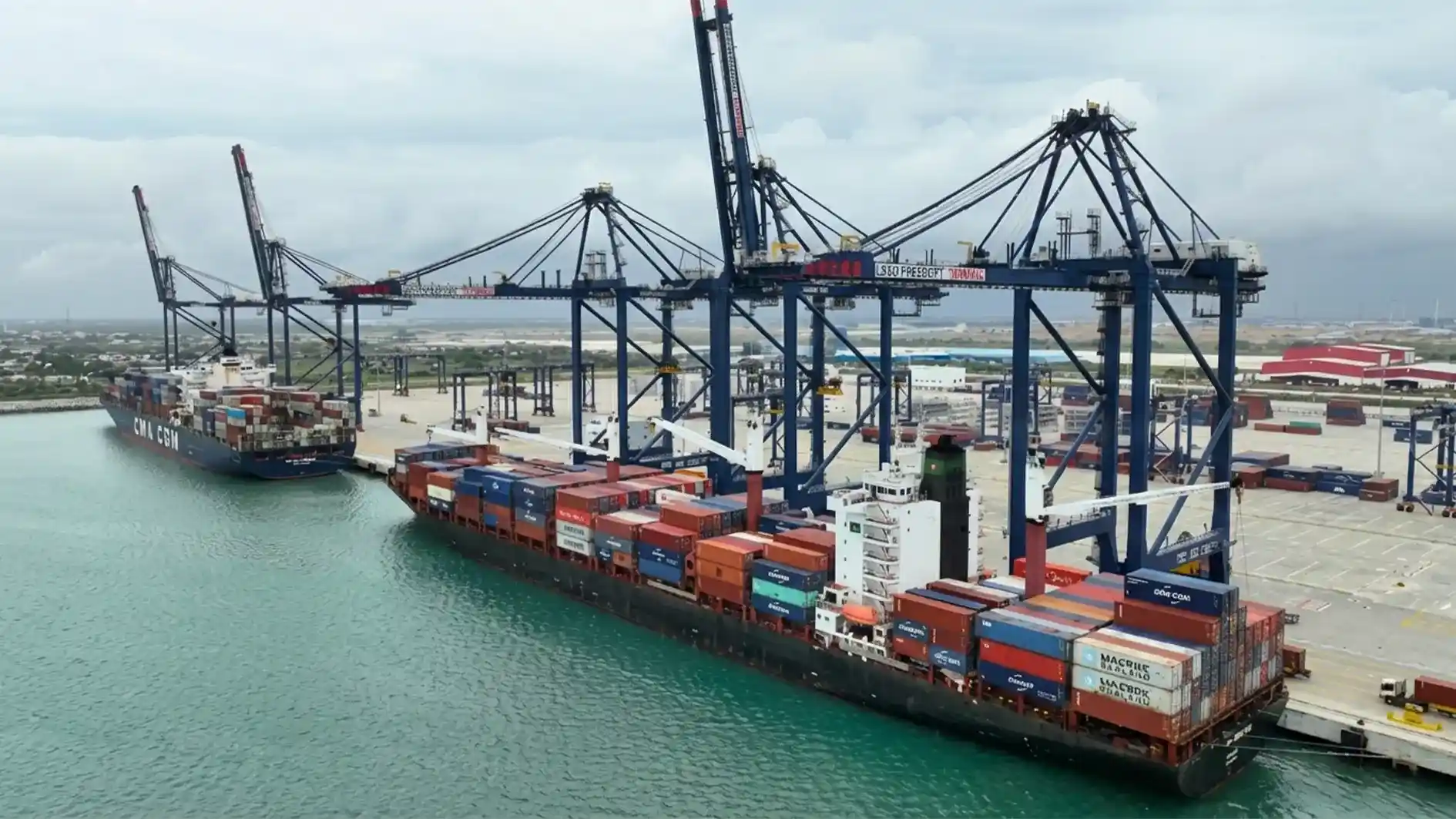In a move aimed at restoring international trust and addressing decades-old disputes, Zimbabwe has announced plans to compensate 94 former white farmers of foreign origin who were displaced during the land reform program initiated under former President Robert Mugabe in the early 2000s. The government will pay a total of $146 million in compensation to these farmers, as they were protected under Bilateral Investment Protection and Promotion Agreements (BIPPAs) signed between Zimbabwe and their respective home countries.
Zimbabwean Finance Minister Mthuli Ncube confirmed that $20 million will be paid from the 2024 budget, with another $20 million allocated in the 2025 budget. The government aims to clear the full amount by 2028 as part of a broader strategy to resolve outstanding debts and regain credibility in the global financial system.
However, this move has reignited a contentious debate about the fairness and legality of Zimbabwe’s land redistribution program, the exclusion of local white Zimbabwean farmers from these payments, and the broader economic implications of this decision.
The Legacy of Zimbabwe’s Land Reform Program
Zimbabwe’s land reform program, launched in 2000, was one of the most aggressive land redistribution efforts in modern history. The policy, championed by then-President Robert Mugabe, saw the seizure of more than 4,500 white-owned commercial farms, which were redistributed to Black Zimbabweans—many of whom had little farming experience or resources.
The land reforms were intended to correct historical injustices dating back to British colonial rule, where a small white minority controlled most of the country’s fertile land. However, the manner in which the program was implemented—often violently and without compensation—led to economic devastation, plummeting agricultural productivity, and the loss of Zimbabwe’s status as the “breadbasket of Africa.”
The immediate consequences of the land reform program included:
- A sharp decline in commercial farming output, especially in tobacco, maize, and wheat production.
- A collapse of Zimbabwe’s export sector, leading to foreign currency shortages.
- The near-collapse of the banking sector as agricultural loans became non-performing.
- Hyperinflation, peaking at 89.7 sextillion percent in 2008, rendering the Zimbabwean dollar worthless.
- A mass exodus of white farmers to neighboring countries such as Zambia, Mozambique, and South Africa, where many restarted their farming businesses.
Why is Zimbabwe Paying Foreign Farmers Now?
1. The Need for Debt Relief
Zimbabwe is currently in the process of negotiating debt relief and restructuring with international financial institutions, including the World Bank, the International Monetary Fund (IMF), and the African Development Bank (AfDB). Zimbabwe’s total foreign debt stands at $21 billion, a burden the country has struggled to service for decades.
Finance Minister Mthuli Ncube emphasized that honoring the BIPPA compensation agreement is a crucial step in Zimbabwe’s debt clearance process. Some of the countries whose farmers were affected by the land seizures are also influential creditors and potential supporters in Zimbabwe’s bid for debt restructuring.
“This is a very important issue for our arrears clearance and debt resolution process for Zimbabwe,” Ncube said. “Some of the countries for which we want support—such as Switzerland, Denmark, Germany, the Netherlands, and the former Yugoslavia—had investors affected by the land reform program.”
2. Rebuilding Zimbabwe’s International Reputation
Zimbabwe has been largely isolated from international financial markets for over two decades due to its failure to service debts, allegations of human rights abuses, and its hostile business environment. Compensating the displaced foreign farmers is seen as a step toward restoring investor confidence and re-engaging with the global financial community.
In recent years, Zimbabwe has made overtures to international investors, particularly in the agriculture, mining, and tourism sectors. However, concerns over property rights and rule of law remain major barriers to attracting foreign direct investment (FDI). Paying the foreign farmers is an attempt to signal a shift in policy and assure potential investors that Zimbabwe is honoring its commitments.
The Exclusion of Local White Farmers: A Source of Contention
One of the biggest criticisms of the government’s compensation plan is that it only includes foreign white farmers covered under BIPPA agreements, while thousands of Zimbabwean white farmers remain uncompensated.
1. The Unfulfilled $3.5 Billion Compensation Agreement
In 2020, Zimbabwe’s government signed a $3.5 billion agreement with local white farmers to compensate them for improvements made on the land, but not for the land itself. The agreement was supposed to be honored in phases over five years, but Zimbabwe has failed to meet its financial obligations, citing budgetary constraints and lack of international support.
Trevor Gifford, a former president of Zimbabwe’s Commercial Farmers Union (CFU), expressed frustration over the government’s approach, saying:
“Twenty-five years from the start of land reform in Zimbabwe, the majority of displaced title deed holders remain destitute due to the non-payment of compensation. The government failed to honor its commitment under the global compensation agreement, which is now expired.”
2. Farmers Who Resettled Elsewhere
Many displaced farmers, like Graham Rae, relocated to neighboring countries such as Zambia, Mozambique, and South Africa, where they revived their agricultural businesses. Rae, who lost his farm 100 kilometers east of Harare, insists that he will not surrender his title deed until he receives full compensation.
“You can’t steal a car and then sell it to me and think you’ve washed your hands and now it’s a legal car,” Rae said. “It’s still illegal, and by the mere fact that I’m buying a stolen car from you, I’m complicit in the theft.”
This sentiment is widely shared among Zimbabwean white farmers, who argue that giving title deeds to resettled farmers while the original owners remain uncompensated creates legal confusion and undermines property rights.
The New Plan: Issuing Title Deeds to Resettled Farmers
While compensating former foreign farmers, the Zimbabwean government is also moving forward with a plan to issue official title deeds to the Black Zimbabwean farmers who took over seized lands.
This initiative is intended to:
- Provide legal ownership to resettled farmers.
- Allow farmers to use land as collateral to access bank loans for investment in agriculture.
- Encourage long-term agricultural productivity and self-sufficiency.
However, critics argue that issuing new title deeds without addressing existing ownership disputes could further discourage investment. As Gifford pointed out:
“The issuing of title deeds on top of existing title deeds, which have still not been paid for in terms of international norms for land reform, is reckless and does not create any confidence for prospective investors in Zimbabwe.”
Conclusion: Will This Move Restore Confidence?
Zimbabwe’s decision to compensate foreign farmers while ignoring local white farmers has sparked widespread debate about equity, financial priorities, and the rule of law. While this step may help Zimbabwe’s bid for debt relief and improved international relations, it does little to resolve long-standing grievances among dispossessed Zimbabwean white farmers.
Key questions remain:
- Will the government eventually compensate local white farmers, or is this an issue that will be ignored indefinitely?
- Will new title deeds improve agricultural productivity, or will unresolved disputes over land ownership deter investment?
- Can Zimbabwe truly rebuild international investor confidence without a clear land tenure system?
While the government has made a symbolic and strategic move, Zimbabwe’s complex land crisis remains far from resolved. The future of land ownership, agricultural recovery, and economic stability in Zimbabwe depends on how the government balances historical injustices, economic realities, and the need to attract investment in the coming years.
Ready to take your career to the next level? Join our dynamic courses: ACCA, HESI A2, ATI TEAS 7 , HESI EXIT , NCLEX – RN and NCLEX – PN, Financial Literacy!🌟 Dive into a world of opportunities and empower yourself for success. Explore more at Serrari Ed and start your exciting journey today! ✨
photo source: Google
By: Montel Kamau
Serrari Financial Analyst
19th February, 2025
Article, Financial and News Disclaimer
The Value of a Financial Advisor
While this article offers valuable insights, it is essential to recognize that personal finance can be highly complex and unique to each individual. A financial advisor provides professional expertise and personalized guidance to help you make well-informed decisions tailored to your specific circumstances and goals.
Beyond offering knowledge, a financial advisor serves as a trusted partner to help you stay disciplined, avoid common pitfalls, and remain focused on your long-term objectives. Their perspective and experience can complement your own efforts, enhancing your financial well-being and ensuring a more confident approach to managing your finances.
Disclaimer: This article is for informational purposes only and does not constitute financial advice. Readers are encouraged to consult a licensed financial advisor to obtain guidance specific to their financial situation.
Article and News Disclaimer
The information provided on www.serrarigroup.com is for general informational purposes only. While we strive to keep the information up to date and accurate, we make no representations or warranties of any kind, express or implied, about the completeness, accuracy, reliability, suitability, or availability with respect to the website or the information, products, services, or related graphics contained on the website for any purpose. Any reliance you place on such information is therefore strictly at your own risk.
www.serrarigroup.com is not responsible for any errors or omissions, or for the results obtained from the use of this information. All information on the website is provided on an as-is basis, with no guarantee of completeness, accuracy, timeliness, or of the results obtained from the use of this information, and without warranty of any kind, express or implied, including but not limited to warranties of performance, merchantability, and fitness for a particular purpose.
In no event will www.serrarigroup.com be liable to you or anyone else for any decision made or action taken in reliance on the information provided on the website or for any consequential, special, or similar damages, even if advised of the possibility of such damages.
The articles, news, and information presented on www.serrarigroup.com reflect the opinions of the respective authors and contributors and do not necessarily represent the views of the website or its management. Any views or opinions expressed are solely those of the individual authors and do not represent the website's views or opinions as a whole.
The content on www.serrarigroup.com may include links to external websites, which are provided for convenience and informational purposes only. We have no control over the nature, content, and availability of those sites. The inclusion of any links does not necessarily imply a recommendation or endorsement of the views expressed within them.
Every effort is made to keep the website up and running smoothly. However, www.serrarigroup.com takes no responsibility for, and will not be liable for, the website being temporarily unavailable due to technical issues beyond our control.
Please note that laws, regulations, and information can change rapidly, and we advise you to conduct further research and seek professional advice when necessary.
By using www.serrarigroup.com, you agree to this disclaimer and its terms. If you do not agree with this disclaimer, please do not use the website.
www.serrarigroup.com, reserves the right to update, modify, or remove any part of this disclaimer without prior notice. It is your responsibility to review this disclaimer periodically for changes.
Serrari Group 2025
















